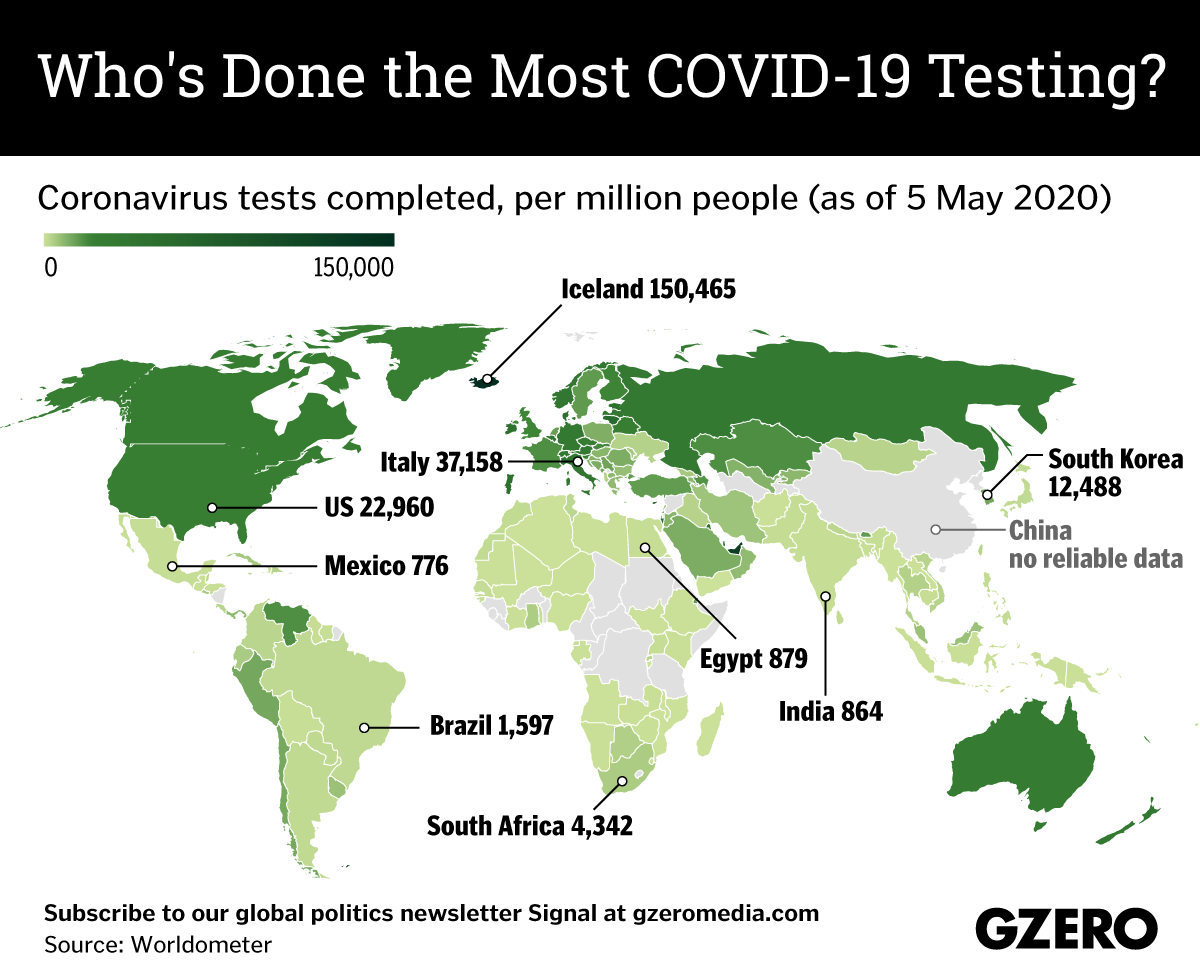The Graphic Truth: Who's done the most COVID-19 testing?
The message from public health experts around the world — from Mumbai to New York, Beirut to Cape Town — has been consistent since the pandemic first emerged: test often and test widely. That's because knowing the number of COVID-19 cases in a country is only useful if you also know how widely tests are being conducted. Data reveals extremely insufficient testing in many places, which may be contributing to a vast underestimation of the virus' spread and associated deaths. India, for example, has been hailed for its relatively low death toll, but it also has an inadequate testing rate, testing just 864 per 1 million people. But the success of testing is not just about scope, it's also about the speed of the government response. South Korea, for example, has a lower testing rate than the US now, but its government tested widely during the early stage of the crisisand managed to isolate infected people before the virus spread like wildfire. Here's a global look at how much testing countries have done so far.
